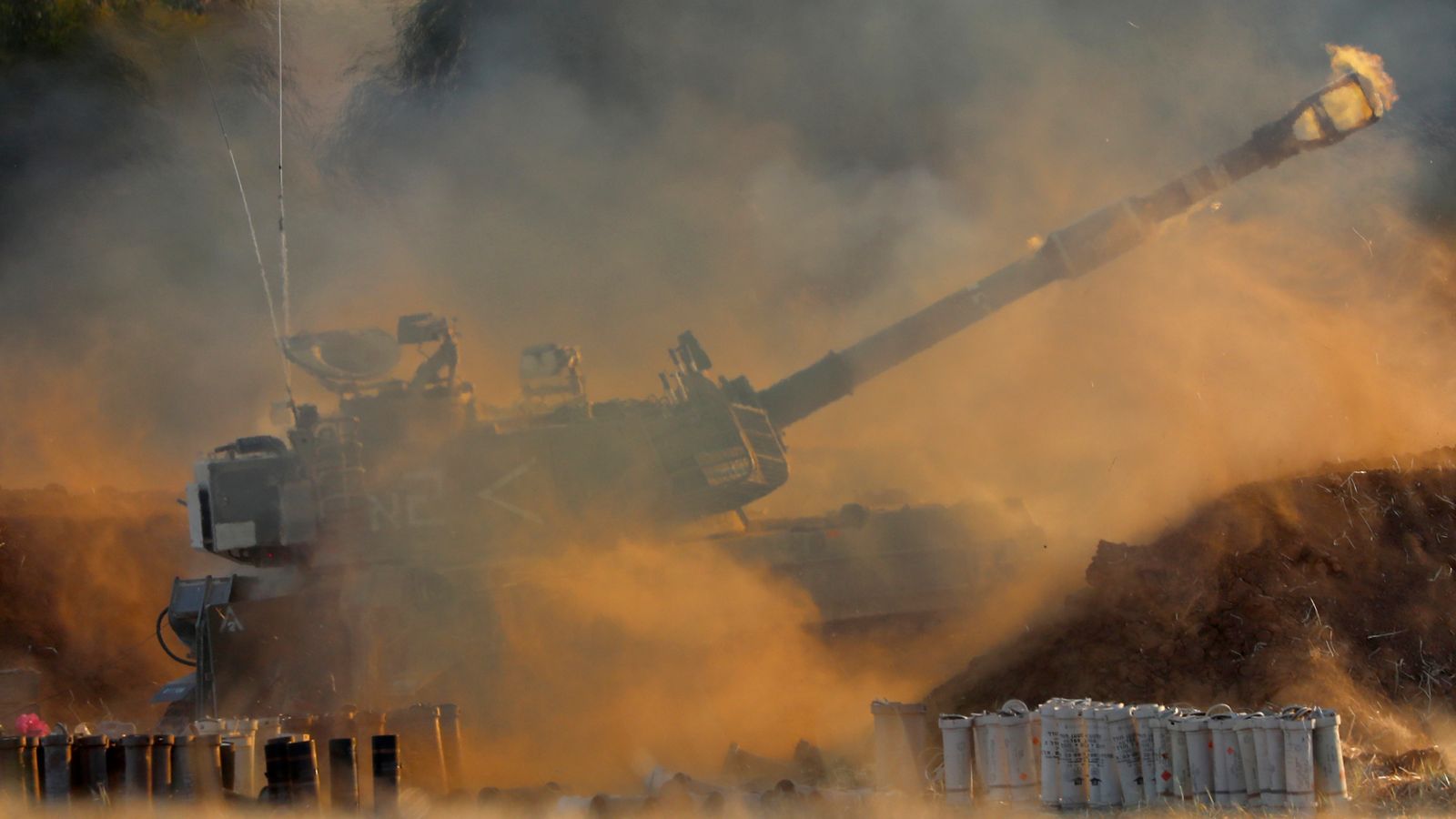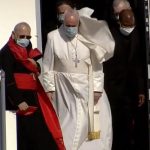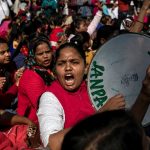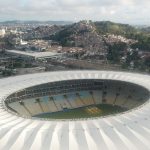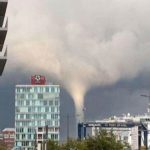Israeli ground forces began launching attacks on Gaza in a widening of hostilities as Israel braced for more internal strife between its Arab and Jewish citizens following Friday prayers.
The Israeli military said air and ground forces were firing at the Hamas-run enclave, though it was not the start of a ground invasion, with troops launching artillery and tank rounds from Israel’s side of the border.
“I said we would extract a very heavy price from Hamas,” Prime Minister Benjamin Netanyahu said in a videotaped statement. “We are doing that, and we will continue to do that with heavy force.”
Thousands of Israeli forces along with tanks, armoured vehicles and artillery are massing along the frontier with Gaza, preparing to push inside if given the order, in what would be a hugely significant escalation.
Unperturbed, Palestinian militants continued to launch rockets from the strip towards Israel into Friday morning.
At least 109 Palestinians have died since the exchanges began on Monday, including 28 children and 15 women, according to Gaza’s health ministry. Palestinian militants have said 20 of their fighters are among the dead, though Israeli officials said this figure is much higher.
Almost half of the deaths happened on Thursday – the deadliest day so far.
On the Israeli side, seven people have been killed, including two children and a soldier.
But this is a crisis on many fronts, as decades of Israeli-Palestinian trauma erupt into clashes on the streets of many towns and cities inside Israel – with Arabs and Jews, who had lived together peacefully, turning on each other, prompting warnings of a risk of civil war.
Synagogues have been attacked, cars torched and individuals beaten up by mobs in the worst internal violence in decades.
New protests could erupt following Friday prayers, with al Aqsa Mosque in Jerusalem’s Old City a potential flashpoint.
It was at this walled compound – one of the most sacred sites in Islam, which is also revered by Jews and Christians – that violence between Israeli police and Palestinian protesters on Monday sparked the first volley of rockets from Gaza into Israel that ignited the wider crisis.
There is of course a regional dimension as well.
On Thursday night, three rockets were fired towards Israel from Lebanon. They landed harmlessly in the Mediterranean Sea in what appears to have been a show of solidarity with Gaza by Palestinian groups in Lebanon rather than the start of a separate offensive.
With so much at stake, frantic diplomatic efforts are underway to try to broker a ceasefire.
Egyptian officials have been speaking with both sides as have officials from the United Nations. The US has dispatched a senior diplomat to the region and Russian President Vladimir Putin has added his voice to those calling for both sides to de-escalate.
In Washington, President Joe Biden said he spoke with Prime Minister Netanyahu about calming the fighting but also backed the Israeli leader by saying “there has not been a significant overreaction”.
He said the goal is to “get to a point where there is a significant reduction in attacks, particularly rocket attacks that are indiscriminately fired into population centres”, and called the effort “a work in progress”.
The UN Security Council is due to hold its first public session on the situation on Sunday after the US objected to an open session on Friday, apparently wanting to give diplomacy a little longer to have an effect.
However, with bombardments between the two sides – unprecedented in their intensity – entering their fifth day, there is no obvious sign that diplomacy is cooling heads.
The Israel Defence Forces has hit close to 1,000 targets in Gaza, including multi-storey buildings, rocket launch sites and individual Hamas military commanders. But this blockaded strip of territory is also home to some two million Palestinians who have no means to flee.
Overnight, masses of red flames illuminated the skies as deafening blasts from the outskirts of Gaza City jolted people awake.
The strikes were so strong that people inside the city, several miles away, could be heard screaming in fear, according to the AP news agency.
At the same time, Hamas and Islamic Jihad, a fellow Palestinian militant group, have fired close to 2,000 rockets towards Israel. Many were shot down by the country’s air defence system but some have penetrated deep into Israeli territory, including the commercial capital of Tel Aviv, sending families racing into shelters.
